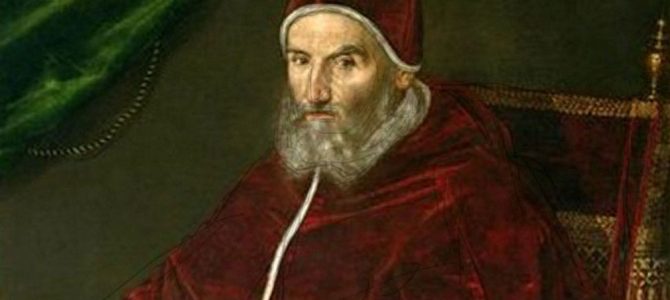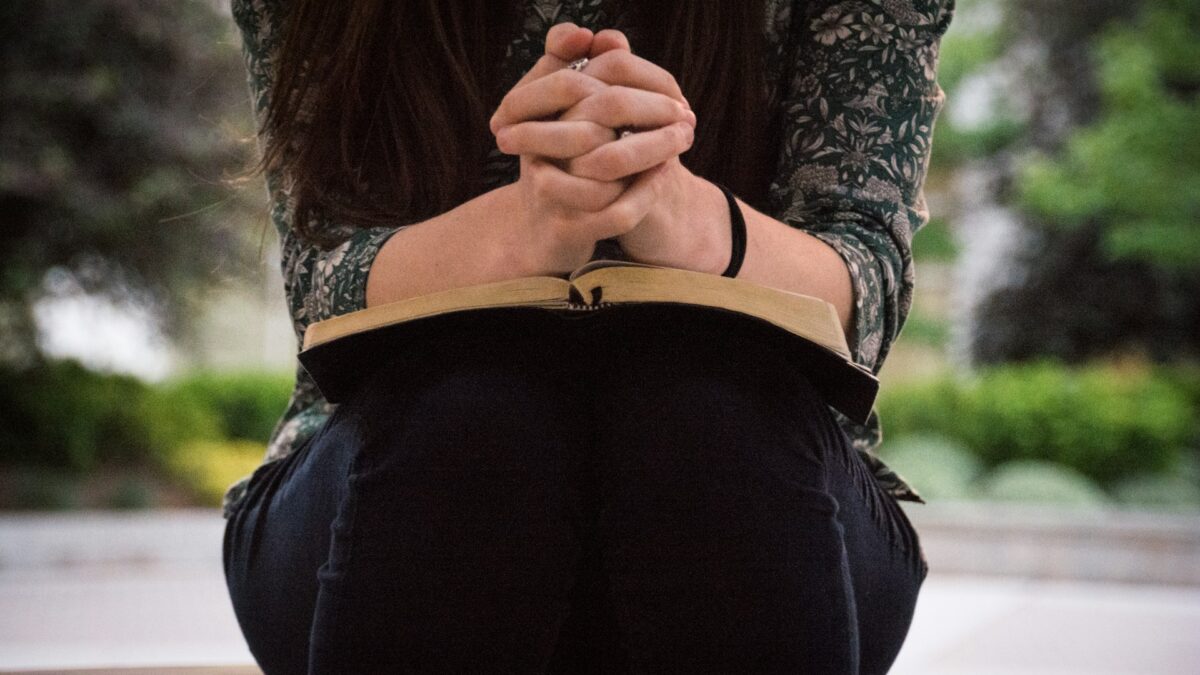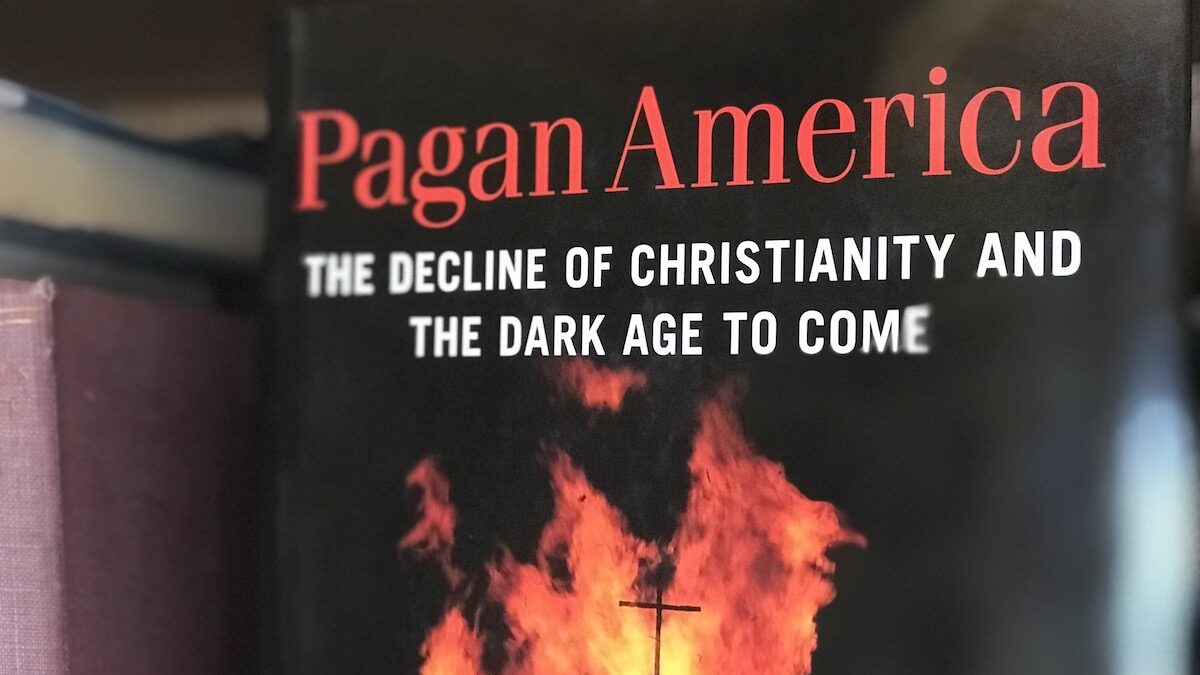
So it’s October and Reformation Day is just around the corner. You know, that day when Protestants worldwide celebrate justification by faith alone, by grace alone, by Christ alone, all alone, because most of their churches are emptying faster than a runway model’s transverse colon during Fashion Week.
If only this year were next year, because 2017 marks the 500th anniversary of the birth of the Reformation, midwifed by Martin Luther hammering on about something or other (you know how Germans get when Italians are the center of attention). Until that glorious celebration, during which more commandments will be broken than at a Clinton deposition, we will have to settle for Peter Leithart’s new book, “The End of Protestantism.”
Now I haven’t read it, which would be unfair if I were to claim any kind of objectivity in approaching the subject. After all, once you become familiar with a thing, you can only have contempt for it (think the European Parliament or other people’s children), and Leithart, a most amiable and learned chap, deserves better. I will say that I found the dust jacket a bust.
Doctrinal Purity Is My Income Security
Now, if I am reading his thesis off Amazon correctly, Leithart would like the various Protestant denominations to unite on some deeply sacramental level, to form a more cohesive Christ-focused front, now that the “end” of Protestantism—the reform of the church catholic along biblical lines—has more or less been accomplished, except in the very places that needed it most: Rome and Constantinople.
Well, I’m sorry, but count me out. I loathe ecclesiastical onesies. Remember! Doctrinal purity is my income security! Protestantism has broken into denominations that have fragmented into confessions that have fallen into schisms that have collapsed into sects for a reason. What that reason is I have no idea, but I do know that my fragment represents the fullness of the faith, and I can prove it if you’ll only lend me a Bible, an overhead projector, and a gun.
Don’t get me wrong: I’m as ecumenical as the next guy, assuming the next guy is Ian Paisley. “That we may all be one” is a praiseworthy goal if your goal is a bureaucracy just left of a Veterans Affairs hospital. But how can you expect evangelical types, whose ecclesiology is so low you’d have to dig to China to find an altar rail, make common cause with high-church Anglicans and Lutherans, those semi-reformed practitioners of labyrinthine liturgies and baptismal regeneration?
And certainly Protestants as a vague yet cacophonous demographic cannot be expected to co-commune with the Vatican. I realize we live in a time when religious liberty is under attack and that Christians should emphasize what unites rather than what Jesus said. But there are limits.
Now that doesn’t mean there isn’t much to admire about Catholicism. Consider the beauty of its cathedrals (marred by the presence of its bishops) and the wonders of its art (spoiled by the veneration of its subjects). But frankly, a list of Reformation grievances could be extended indefinitely, seeing as it comprises almost the entirety of Protestantism’s reason for being.
The Day the Pope Stole Time
But allow me to single out what is perhaps the greatest of Rome’s crimes against that pristine Christian faith found only in the minds of Southern Baptists. In October 1582, the pope stole time. Yes, time.
By the mid-1570s, the Julian calendar, established in 45 B.C., was ten days behind the real seasons of the year. The spring equinox was taking place on March 12 or thereabouts, and Easter was falling far too late in the springtime.
All this happened because the actual Earth year is about 11 minutes short of the 365 and one-quarter days set by Julius Caesar (which is what got him killed, although I may be mistaken about that). It’s really 365 days, 5 hours, 48 minutes, 46 seconds. (And some still argue for creationism.) Had that Julian drift continued to, uh, drift, Easter would eventually have been observed in the summer, with chocolate bunnies melting into mounds of malodorous goo, and Veteran’s Day celebrated sometime during the Eschaton.
So Pope Gregory XIII appointed a commission to tweak the traditional calendar. Under the leadership of physician Aloysius Lilius and Jesuit astronomer Christopher Clavius, two men whose names will live on in Wikipedia and nowhere else, the commission consulted with scientists and clergy, and after wrestling with various ideas for half a decade, it proposed eliminating three leap years every 400 (because math).
That would prevent further creep of the calendar against the seasons (except for a minuscule under-correction). But resetting the calendar so the equinox would come when it was supposed to, in late March, required a more drastic solution: ten whole days would have to be erased, vanished, like journalistic principle from a cable TV news reporter.
The commission sent its report to the pope on September 14, 1580. The pontiff issued a papal bull on February 24, 1582, declaring the new calendar would go into force in October (when there were few holy days and people could actually get some work done). In short, the day after October 4 would not be October 5, but October 15.
Cue the Global Panic
This was short notice, even for Catholic lands ever-eager to comply with Rome. Only Italy, Spain, and Portugal were fully ready by October—you know, those countries known primarily for their efficiency.
Many people thought their lives were being shortened by 10 days and started doubling up on their retirement contributions. The pious worried that saints might not listen to prayers that came 10 days “later” than the traditional saints’ days (saints being a petulant and petty bunch). Everyone’s birthday moved to a calendar date 10 days later, ruining party plans like nobody’s business. Rents, interest, and wages had to be recalculated for a month that had a mere 21 days. Boy, people were stupid back then.
The stalwart Prots in Britain and the Colonies held out for the old ways until 1752, at which point everyone woke up 10 days late for work. And those dentist appointments it took so long to book? Well, these are Brits. What dentist appointments?
As for the Russians, it wasn’t until the rise of the miserable, filthy Communists that they moved to the new calendar, in 1918. But what did they care? Monday, Friday, 1918, 2042. History, that relentless scold, will catch up with you one way or another.
Take This Deal Or Face the Consequences
Now here’s the deal: if we are to find inspiration in Leithart’s call to unity and go so far as to extend the right hand of fellowship to our friends in Rome, I demand a good-faith gesture on the Vatican’s part. As an heir of the Reformation, baptized into the Evangelical Church of the Augsburg Confession, and a nephew to many uncles, I demand the return of those 10 days.
Steal our tithes, steal our peace, steal our childhood—but our time? I think not. Time is a commodity more precious than gold. Sure you can buy time and gold, but you can only pawn one.
I do hereby warn the Roman Catholic Church that if 30 days hence those 10 days have not been returned to the calendar, I will not be responsible for the rioting, the looting, the brazen thievery that characterized much of the English Reformation and is an almost constant state of affairs in certain parts of Naples.
“But won’t we suffer from the same paschal drift that afflicted the ancients?” some smart aleck is no doubt tweeting. “A foolish consistency is the hobgoblin of little minds,” said a guy who thought that still, small voice in his head was God and not his mother-in-law.
Now the present pontiff, Francis, has a reputation for being a gentle soul given to compromise, overflowing with empathy, an almost avuncular figure (assuming your uncle dressed like Liberace’s piano tuner). In short, a scourge to traditional Catholics everywhere.
As His Holiness lets loose with those confounding, off-the-cuff remarks that apparently undo every single dogmatified dollop of Catholic doctrine, could he not come up with one bon mot regarding our stolen time? Could he not, in the interest of peace, return to us our lost days?
Time flies, is eaten up, passes you by—but where does it go? Jersey? Why? The Rock and Roll Hall of Fame is in Cleveland. But imagine it returning to you like bread cast upon the waters, which is probably the stupidest thing you can do with bread, but not with a subpoena (trust me on this).
Should Pope Francis still be alive and kicking by the time this plea is made public, that is, if he has not keeled over into his pasta fazool like one of those Renaissance dudes, I, as a self-deputized agent of all Protestantdom, do humbly request that the Vicar of Christ on Earth get off the stick and return to us our 240 hours.
Think it over, Your Holiness. The ball is in your papal court.
And if you could sandwich in those extra days around Thanksgiving, I’d really appreciate it.









